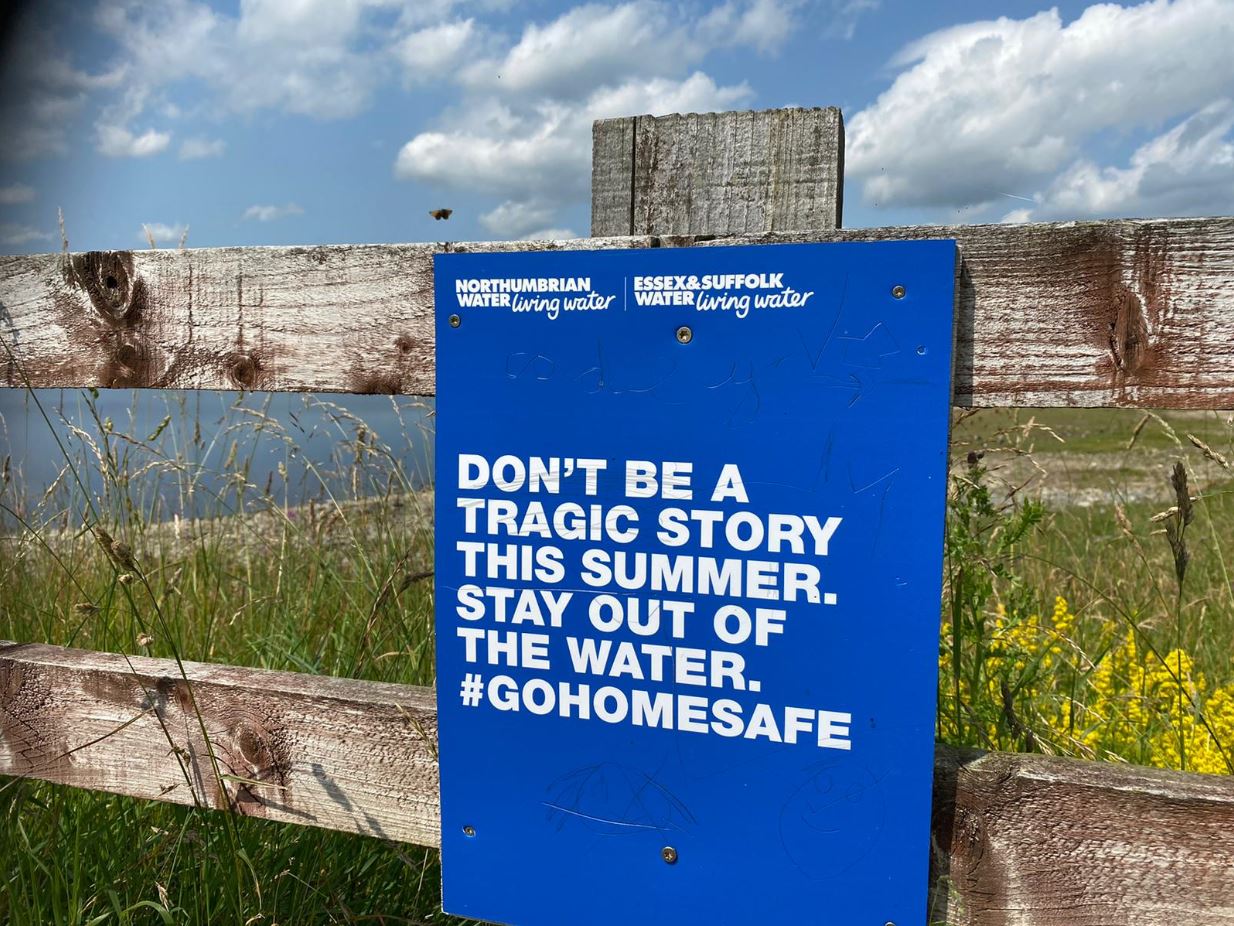Managers at North East tourist attractions are warning that a tragedy could occur if visitors continue to ignore warnings to stay out of the water.
With high temperatures hitting the region, Northumbrian Water is seeing large numbers of people overlooking signs and dismissing employees’ warnings to stay out of the water.

Reservoirs are working pieces of engineering, with dangerous currents below what might appear to be a peaceful, flat surface.
As with all large areas of water, people entering can fall victim to cold water shock, which causes the body to seize up, preventing the use of limbs to swim and get to safety.
Despite signage and banner warnings to stay out of the water, which are driven or walked past upon entry to sites, people are still putting their lives at risk by going into the water.
Don Coe, Waterside Parks Operations Manager at Northumbrian Water, said: “It’s absolutely heart-breaking to hear about recent tragedies in other parts of the country, and terrifying to know that it could happen here if people don’t stay out of the water.
“The number of people we have had to ask to leave the water in the last few days is very worrying.
“This includes people actually in the water or on things like dinghies, inflatable rings and paddle boards.
“These messages aren’t there because we want to spoil people’s fun. They are there because we don’t want people to die.
“We want people to come to these sites and have a great time, then go home safe to their loved ones. The simplest rule for doing this is also the most important, and that’s to stay out of the water.
“We have increased patrols on our busier sites, but the sheer size of our reservoirs and the number of people ignoring the rules and putting their lives, and sometimes those of their children at risk is a tragedy waiting to happen.”
The team are even having to replace signs that have been removed by visitors, so that when they are asked to get out of the water, the Rangers have no messaging to point to.
Don added: “We partner with a number of organisations on different sites, including sailing clubs, which have people who are trained and accredited to manage activities on or in the water. It is only through these organisations that we allow any activities in or on the reservoirs. Outside of that, the rule is simple – stay out of the water.”
